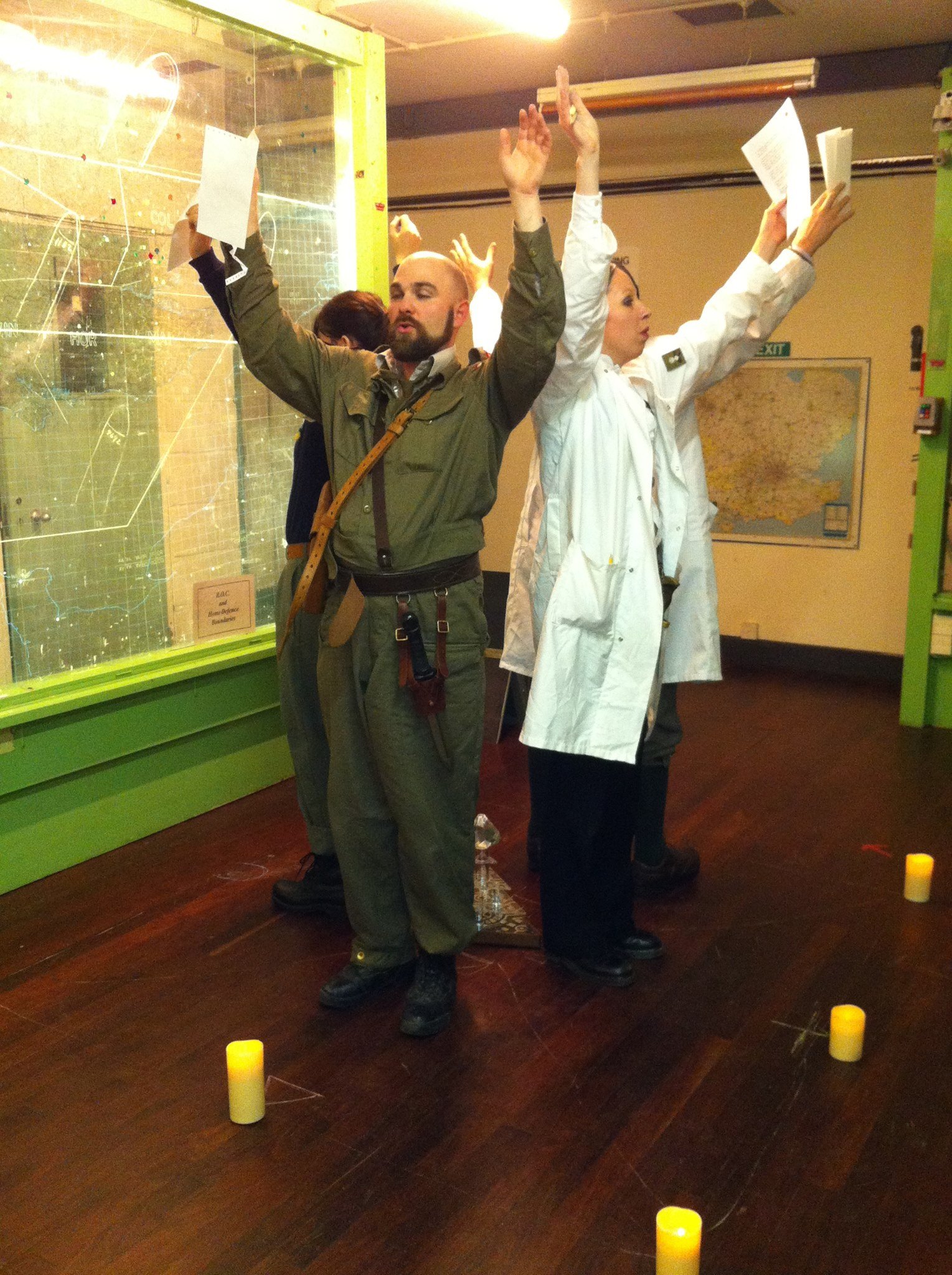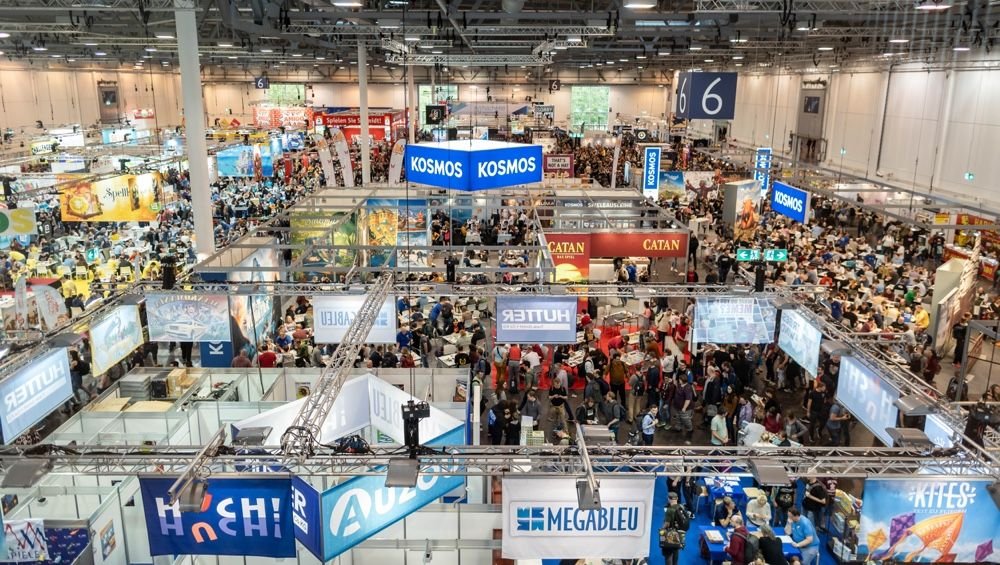Tabletop Games and Embodied Play
A research strength within the Manchester Game Centre is tabletop and analogue games. Our members are dedicated to the study, promotion, and development of analogue games in academia, including work on board games, table-top roleplaying games, live action roleplaying games, and other forms of non-digital play, and including hybrid games that use both digital and analogue components. Our work aims to bring about a step-change in the study of analogue games, which remain relatively under-researched and receive sparse coverage in the curriculum. We work with a growing academic community across the UK and beyond producing significant research on analogue games and game cultures, and host events on this theme to encourage collaboration, identify and develop new trends in analogue game studies, and to bring together academic, industry, and player communities.
Partnership with Game in Lab
During 2021 we partnered with Game in Lab, a division of Asmodee Research dedicated to the support and dissemination of scientific research on board games. The 2021 Game in Lab RPG Cycle hosted events exploring roleplaying games in France, Italy, Canada, the United States, Japan and the UK. The Manchester Game Centre were Game in Lab’s UK partner, devising and delivering two exciting events that brought together players, designers and academics to explore various aspects of roleplaying games. ‘Dark Forests and Doomed Adventurers’ was a round table event that featured indie game designers and academics exploring the ways in which players create, encounter, and interact with the environment in indie roleplaying games. You can watch the video here and listen to our members playing the folk horror roleplaying game, The Shivering Circle. ‘Dice on the Nile’: Roleplaying History’ investigated the use of Dungeons & Dragons 5e to engage with the history of the early Islamic world, with panelists considering the challenges posed by the use of historical settings in roleplaying games. You can watch the discussion here and listen to a game session with the group in a special podcast made especially for the event.
Since 2021, Game in Lab have sponsored our annual Multiplatform symposium, providing funds, networking opportunities and promotional support to grow these academic and public events year-on-year. MGC members have also received funding support from Game in Lab for projects on climate change board games and the Games Workshop IP, Blood Bowl.
Material Game Studies
MGC co-directors Paul Wake and Chloé Germaine are editors of the collection, Material Game Studies for Bloomsbury. The volume advocates for, and defines, Material Game Studies, creating a dialogue between scholars with diverse interests, including card and board games, role-playing games, art and performance, game design, ecology, animal studies and digital technologies. Essays in the volume apply insights from the material turn in philosophy and critical theory to the study of play and games. This is important for scholars working in Game Studies, which has hitherto been concerned primarily with the digital, but also for scholars interested in how play and games shed light on materiality itself. The contributions reflect an international discussion, bringing together work from the UK, Europe, Australia, the United States and Canada.
Games Workshop Research
Members of the MGC are interested in uncovering the history of Games Workshop, researching its storyworld, exploring its transmedia incarnations, and carrying out research on specific games. We hosted the Games Workshop Research Day in October 2024, hosting scholars presenting papers on Ancient Egypt in GW games, the GW “Black Library” fiction, Transmedia Storytelling in the Warhammer universe, and more. MGC co-director, Paul Wake, has also been funded to carry out research on the cultural history of the GW game, Blood Bowl. We are continuing to develop this research area, so watch this space for more activity.
LARP Studies
MGC researchers hold special expertise in live action roleplaying games and communities. Our research includes work on horror, materialism and LARP, and on the “occult” practices of LARP-design. We have hosted LARP events as part of our public outreach work, curated panels on new research in LARP studies featuring international participants, and continue to develop research on LARP through collaborations and participatory methods.
Tabletop Roleplaying Game Studies
Work on tabletop roleplaying games (TTRPGs) cuts across our different research areas, including Games and the Environment and Games for Health and Wellbeing. Our researchers are also TTRPG designers, creating roleplaying games and scenarios as ways of exploring their research questions. Recent examples of our work in this area include Rooted in Crisis, a TTRPG collection that explores climate change dynamics and collaboration through speculative fictional play, research on the value of playing and writing D&D in historical settings, research on the development of D&D as a therapeutic intervention, the production of original TTRPG publications by our members, the creation of an ecohorror story scenario for an established TTRPGs, The Between, to explore the affective and historical dimensions of climate crisis, and research papers on the ethics of horror roleplaying games and climate change at major conferences.
The STRATEGIES Project and the Board Game Industry
STRATEGIES — A Sustainable Transition for Europe’s Game Industries — is a Horizon Europe and Innovate UK-funded project that supports Europe’s game industries in realising their potential as drivers of sustainable innovation, contributing to achieving the goals of the European Green Deal and delivering an economy that works for people. The project is co-led by Chloé Germaine (Communications Lead - Manchester Metropolitan University), Joost Raessens (Project Coordinator - Utrecht University) and Paul Wake (Scientific Lead - Manchester Metropolitan University). STRATEGIES is one of three Horizon-Europe funded projects within the programme, “Cultural and creative industries for a sustainable climate transition.” The STRATEGIES project is concerned with both video games and board games, and recognises that these industries share some of the same challenges and opportunites and, at the same time, that they differ in a number of ways. As such, our research seeks to identify areas of best practice for board game design and production, uncover ways in which insights from the digital and board game industries might support one another, and, at the same time seeks to address the issues unique to each. Paul and Chloé were recently at the major Board Game industry convention Spiel, in Essen Germany, to talk about these issues and challenges as part of a series of workshops on sustainability curated by the organisers.






